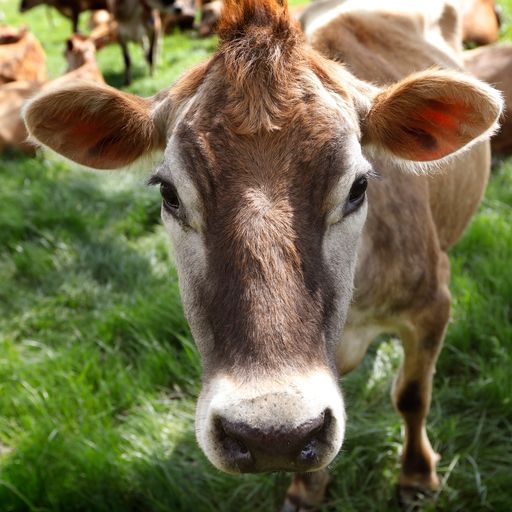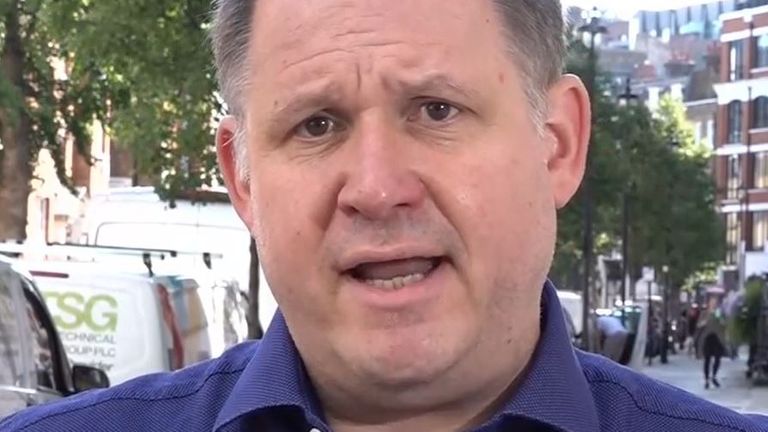PM not keen on placing ‘extra taxes on hard working people’ amid calls for new salt and sugar tax
Boris Johnson has said he is not attracted to the idea of imposing an extra tax on salt and sugar which would hit “hard working people” the hardest.
On Thursday, a review of the food we consume suggested a Salt and Sugar Reformulation tax could be added to food sold in shops, cafés and canteens in England as part of a new National Food Strategy.
The report, commissioned by the government, says a £3 per kg tax on sugar and a £6 per kg tax on salt sold for use in processed foods or in restaurants and catering businesses would encourage manufacturers to reformulate their recipes or reduce their portion sizes.
But when the concept was put to him by reporters in Coventry, the prime minister said: “I am not, I must say, attracted to the idea of extra taxes on hard working people.”
Mr Johnson added: “I will study the report. I think it is an independent report. I think there are doubtless some good ideas in it.”
The review says the food we eat and the way it is produced is adversely affecting the nation’s health and “doing terrible damage to the planet”, and that we have to implement major changes.
The salt and sugar taxes, which the review says should be brought in before the end of the decade, could add 1p to the price of a packet of crisps and 7.5p to a small chocolate bar.
It says the tax would reduce the amount of salt and sugar used by the food industry, and any money raised should be spent on giving free school meals to another 1.1 million children a day, funding holiday activity and food clubs, and supporting healthier diets for those in the most deprived communities.
It also highlights health problems and the cost to the economy of poor diet and says more should be done to help disadvantaged families eat healthy food.
This morning, the author of the report Henry Dimbleby told Sky News the tax is part of a plan to create a “food system that is good for us and good for the planet”.
He added: “Everyone thinks in this country… the way to solve obesity and diet-related disease is through education, exercise and willpower and people who don’t have the willpower deserve what is inflicted upon them… but actually none of that’s true.
“Exercise does not help you lose weight… and there is a strong genetic component in some people that makes them particularly attracted to these foods.
“Companies market at them, they eat more and companies spend more money on it – you need to break that commercial cycle and that is what the tax is intended to do.”
He said he was confident many companies would reformulate their recipes to avoid passing on a cost increase to the consumer.
Andrew Burton, the owner of the Mannion & Co café in York is not convinced the idea will work.
“We’ve looked at everything we do, we have reduced salt, we have reduced sugar, but there’s only so far you can go before someone says ‘that’s bland, can we have the salt, can we have the sugar’, and they just put it on themselves,” he said.
The report also warns the amount of meat we eat needs to be reduced by 30% in a decade to free up land for storing carbon and preserving nature.
And it urges the government to invest £50m into the development of alternative proteins that can be used as sustainable options in ready meals, such as lab-grown meat or plant-based foods, which could create thousands of jobs in factories or farming.
The government should also provide between £500m to £700m a year, around a third of the total scheme, to pay farmers to manage the land to actively store carbon and restore nature.
Robert Campbell, who has raised livestock on his farm at Stokesley near Thirsk for more than 50 years, said farmers will adapt and change as they need to.
“Just like any other business we produce what people want, and if they don’t want it we don’t produce it because there’s no market,” he said.
The review was commissioned by the government to advise ministers in England, with the devolved nations developing their own food strategies, although it is expected to influence decision making across the UK.
Subscribe to ClimateCast on Spotify or Apple Podcasts.


